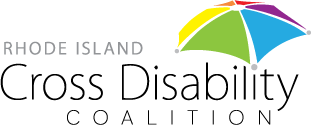From the February 24, 2021 FYI Guide Update, The Economic Progress Institute
Updates to Tax Credits for Low- to Moderate- Income Taxpayers
Rhode Islanders can now file their federal and state taxes. Tax credits like the Earned Income Tax Credit, Child Tax Credit, Child and Dependent Care Tax Credit, and the Property Tax Relief Circuit Breaker Program help low- to moderate-income Rhode Islanders make ends meet.
The following tax credit Guide Pages have been updated to reflect 2020 rules:
- The Earned Income Tax Credit (EITC) provides a tax credit and/or refund to people who earn low to moderate wages. The payment is received as part of the end-of-year tax filing period. Workers who qualify for the federal EITC also qualify for a state EITC which is currently 15% of the federal amount for tax year 2020.
- The Child Tax Credit (CTC) is a federal tax credit designed to help families offset the cost of raising children. A family must have at least $2,500 in earned income to claim any portion of the credit. The credit is worth up to $2,000 per child under age 17 at the end of the tax year, and is subtracted from the amount of income taxes the family owes. If the credit exceeds the amount of taxes the family owes, a percentage of the remaining credit is given back to the family in a refund check. Up to $1,400 of the credit is refundable.
- The Child and Dependent Care Tax Credit is a federal and state tax credit that allows working people to deduct a percentage of their costs for child care or for care provided for an incapacitated dependent from the amount of federal taxes owed. The federal CDCTC is not refundable. The state CDCTC is 25 percent of the federal credit the taxpayer receives. The child and dependent care tax credit is based on the person’s out of pocket expenses, including the co-payments made by a parent participating in the state Child Care Assistance Program (CCAP).
- The Property Tax Relief Circuit Breaker Program provides state-funded tax credit to senior and disabled homeowners and renters whose property taxes exceed between 3% and 6% of their household income. For renters, property tax is calculated at 20% of annual rent. The maximum credit is $400 for 2020.
COVID-19 Related Rules for 2020 Tax Year
Earned Income Tax Credit and Child Tax Credit:
You can use either your 2019 income or your 2020 income to calculate your EITC and you can use whichever number gets you the bigger EITC. This is also the case for the Child Tax Credit. You can ask your tax preparer to run the numbers both ways.
Recovery Rebate Credit:
If you didn’t get your first or second stimulus check, you can claim the payment as a tax credit when you file your 2020 tax return. If you didn’t receive the full payment, you may also be able to claim the difference. Read here to learn more about who may not have received the stimulus payments when they were initially paid and may be eligible to claim them when they file their tax return.
Mixed Status Families:
One group of tax payers who were ineligible for the $1,200 and $600 stimulus payments when they were initially paid out are families in which a couple included one spouse who has an SSN and one has an ITIN. If they meet other eligibility rules, these families can receive the stimulus payments by claiming the recovery rebate credit when they file taxes. For more information (and to get the word out) please see our Stimulus Fact Sheet for Mixed Status Families (English / Spanish).
Spread the Word: Free Tax Preparation Available
The Volunteer Income Tax Assistance (VITA) program offers free tax help to people who generally make $55,000 or less, persons with disabilities and limited English speaking taxpayers who need assistance in preparing their own tax returns. IRS-certified volunteers provide free basic income tax return preparation with electronic filing to qualified individuals. Low and modest-income Rhode Islanders may qualify for free help filing their taxes and applying for tax credits like the Earned Income Tax Credit.
Click here to see a list of the 2021 VITA sites in Rhode Island.
You can also find your nearest VITA site by calling 2-1-1.
